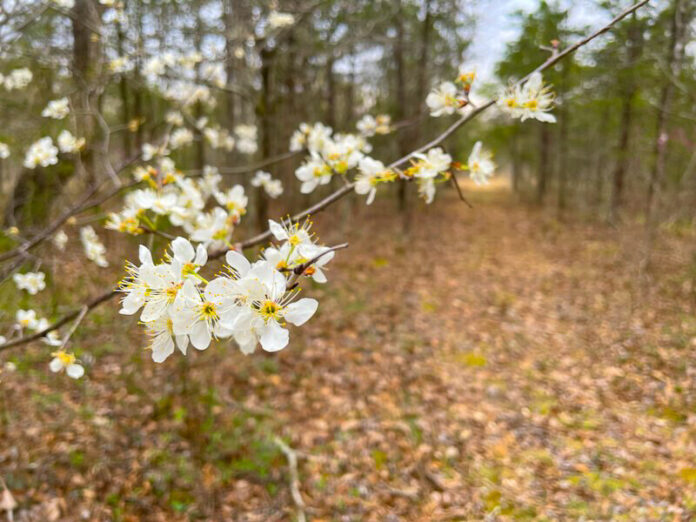TennGreen Land Conservancy announced today its acquisition of 15 acres of property adjacent to Cedars of Lebanon State Park and Natural Area in Wilson County. This acquisition will expand the Cedars of Lebanon State Park boundary and enhance the protection of the area’s unique habitat with rare and endangered species.
The Tennessee Department of Environment and Conservation (TDEC) found the property for sale in late 2022 and requested TennGreen Land Conservancy’s assistance in its purchase. The property lies within one of TennGreen’s Strategic Land Conservation focal areas and adds to TennGreen and TDEC’s ongoing land protection efforts at Cedars of Lebanon. The two partners added five acres to Cedars of Lebanon in 2021, and they continue to work together to protect its surrounding lands.
“We’re thrilled to be part of another expansion of Cedars of Lebanon,” said Alice Hudson Pell, TennGreen Land Conservancy’s Executive Director. “This is our second project in the area, and we hope there will be more to come! This acquisition represents a small but important property at high risk of development. As a nimble conservancy, we’re happy to acquire these lands for public enjoyment. I encourage others in the community to reach out if you’d like to work together or protect your land!”
Hosting thousands of guests each year, Cedars of Lebanon State Park and Natural Area represents a unique habitat of limestone cedar glades, a rare ecosystem found in Middle Tennessee. The area contains rare and endangered species, some of which exist in few or no other places in the world. Examples of endemic cedar glade species include Tennessee coneflower (Echinacea tennesseensis), Nashville breadroot (Pediomelum subacaule), and limestone fameflower (Talinum calcaricum).
As more people and businesses move into the region, it’s critical to protect these natural habitats while they still remain. Acquisition of this fifteen-acre property will provide habitat protection for many plants and animals, including the leafy prairie clover (Dalea foliosa), an endangered species in Tennessee.
Moving forward, TennGreen Land Conservancy hopes to work with nearby landowners to place conservation easements along the park boundaries in this rapidly developing area. The purpose of these easements is to protect rare cedar glades and other wildlife habitats, minimize negative impacts on the land from future development, and allow for continued use of prescribed fire for land management at Cedars of Lebanon.
A property protected by a conservation easement can remain privately owned, while completion of the easement means that its rich landscapes will remain perpetually protected even if ownership changes. Conservation easements are voluntary, legal agreements that are extremely tailorable to a landowner’s vision for their land. Whether the landowner wants to protect their family farm from encroachment; establish trails on their land for public enjoyment; preserve historic areas, wildlife areas, or something else; conservation easements are a helpful tool. Essentially, they grant the rights to control the development and use of a property to a land conservancy (like TennGreen Land Conservancy) that will enforce those rights in perpetuity.
To learn more about TennGreen conservation easements, email [email protected] or call (615) 329-4441 ext. 120 today! Additional information about conservation easements (or this project) can be found at tenngreen.org.
TennGreen Land Conservancy
TennGreen Land Conservancy (formerly the Tennessee Parks & Greenways Foundation) is a 501(c)(3) environmental nonprofit and the oldest accredited statewide land conservancy in Tennessee. Through sound science and partnerships, TennGreen identifies and conserves land across Tennessee for wildlife corridors, critical habitat, and public benefit. TennGreen protects, cares for, and connects people with Tennessee’s natural world by providing meaningful outdoor experiences, establishing conservation easements, supporting restoration efforts, and acquiring (or assisting in the acquisition of) privately-held land.



























